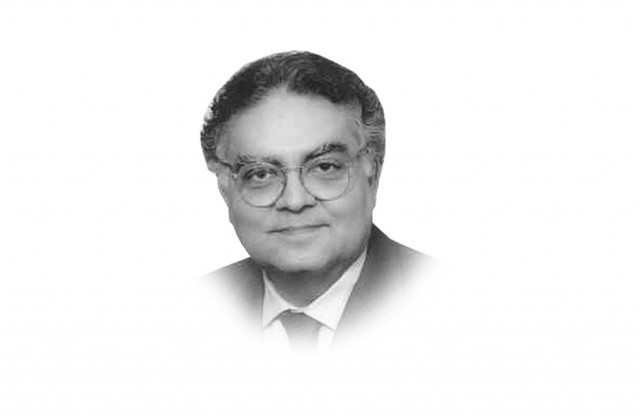The path to real change
The present institutional structure breeds extremism, anarchy and can neither sustain democracy nor economic growth.

The principal feature of Pakistan’s economic history is the failure to sustain high per capita GDP growth. Economic growth has occurred in spurts when large concessionary capital inflows have propped up growth, followed by low growth periods.
The distinguishing feature between the developed and undeveloped countries is that the former have been able to sustain per capita income growth over long periods of time, while the latter have been unable to do so. Worldwide data on GDP growth rates for the last one thousand years proves this proposition. For example, the average per capita income in the year 1000 AD was $405 for what are today developed countries, and was slightly higher at $440 for what are today undeveloped countries. By 1500 AD however the average per capita GDP in the developed countries ($705) had outstripped that in undeveloped countries ($548). By 1998 AD the gap had widened — the figures were $21,470 for developed countries and $3,102 for undeveloped countries.
The New Institutional Economics, the cutting edge field in the subject, shows that the most important factor in sustaining long-term growth of a country is its particular institutional structure. An institution is a set of formal rules and informal norms, which together with their enforcement mechanisms structure human interaction. Rules embody incentives and disincentives for particular kinds of behaviour and are therefore crucial in determining economic performance. The kinds of organisations that emerge, whether efficient like Microsoft or inefficient like some of Pakistan’s power sector companies, depends on the underlying institutional framework and the associated incentive structure.
The institutional structure in developed countries (Open Access Social Orders) is characterized by free access to firms, broad based competition and selection based on merit, hence, efficiency, innovation and continuous productivity increase that together sustain growth.
By contrast the undeveloped countries like Pakistan have an institutional structure (Limited Access Social Orders) where a small coalition of elites generates and appropriates unearned incomes (rents) by excluding the majority of citizens from the process of growth. Thus, such an economy is characterized by restricted competition, nepotism, widespread corruption, lack of incentives for efficiency and innovation, hence failure to sustain economic growth.
The central challenge for Pakistan’s development and democracy is to develop the institutional structure for a new trajectory of sustained growth. This new growth process would involve opening up investment and high wage employment opportunities to all of the citizens rather than a few. Such a growth process would be sustainable because the people would become both the subjects as well as the beneficiaries of growth. Thus the challenge of change for Pakistan is not musical chairs, but changing the institutional structure in which both society and state can prosper.
Published in The Express Tribune, October 25th, 2010.















COMMENTS
Comments are moderated and generally will be posted if they are on-topic and not abusive.
For more information, please see our Comments FAQ